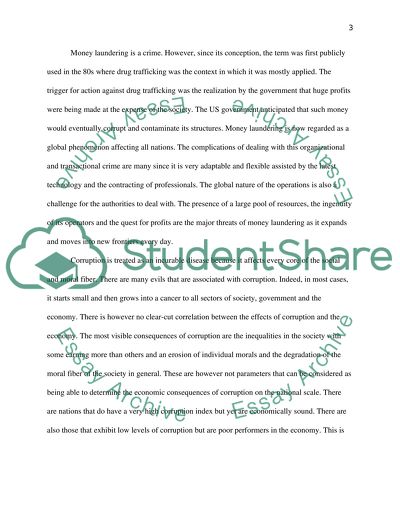Cite this document
(“Money laundering and corruptions Essay Example | Topics and Well Written Essays - 2500 words”, n.d.)
Retrieved from https://studentshare.org/law/1394009-international-business-law
Retrieved from https://studentshare.org/law/1394009-international-business-law
(Money Laundering and Corruptions Essay Example | Topics and Well Written Essays - 2500 Words)
https://studentshare.org/law/1394009-international-business-law.
https://studentshare.org/law/1394009-international-business-law.
“Money Laundering and Corruptions Essay Example | Topics and Well Written Essays - 2500 Words”, n.d. https://studentshare.org/law/1394009-international-business-law.


